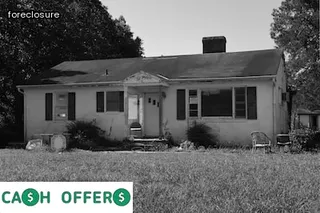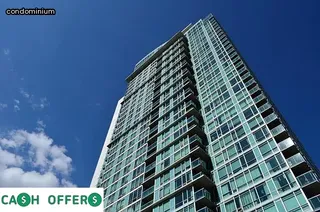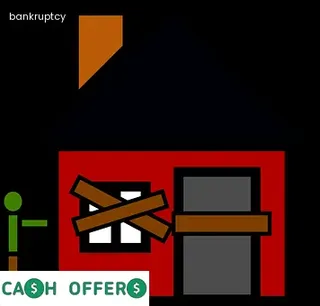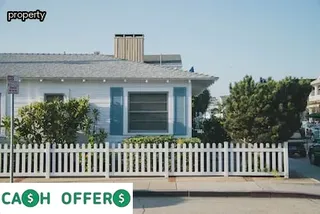When it comes to homeowners association foreclosures, it's important to understand the basics. Homeowner associations (HOAs) are a type of real estate organization that works to maintain and improve the neighborhoods they serve by enforcing rules, collecting fees, and providing services to residents.
In some cases, HOAs can even foreclose on a home if the homeowner fails to pay dues or comply with association rules. In New York, HOAs are allowed to foreclose on a home under certain circumstances; however, this process is complicated and must follow state and local laws.
The first step in the foreclosure process is for the HOA to file a lien against the property if dues have not been paid. If payments are not made after the lien has been filed, then the HOA can take legal action by filing a foreclosure lawsuit.
This lawsuit will result in a court date where the homeowner may be able to negotiate an arrangement with the HOA or face eviction. During this time, it is important for homeowners to be aware of their rights and obligations so that they can protect themselves from potential financial hardship associated with an HOA foreclosure.

Homeowners Associations (HOAs) in New York State have the right to place a lien on a homeowner's property due to unpaid dues. This means that if an HOA obtains a judgment and the homeowner doesn't pay, they can foreclose on the house to collect any unpaid dues or fees.
To initiate foreclosure proceedings, HOAs must first file a lien with the county clerk. Once it is filed, homeowners are given notice of the lien and are instructed to pay what is owed within 30 days.
If payment is not received within this time period, then the HOA can begin legal proceedings. These proceedings involve obtaining a court order from the Supreme Court that allows them to move forward with foreclosure proceedings.
If this order is granted, then the house can be sold at auction in order to recover any unpaid fees or dues from the homeowner. It's important for homeowners to understand their rights when it comes to HOAs and lien rights in New York State so that they can take action quickly if needed.
It can be difficult to understand the basics of homeowner's association foreclosures, especially in New York State. Fortunately, there are steps that homeowners can take to prevent an HOA foreclosure.
For example, it is important to stay current on any fees and assessments due to the Homeowner's Association; failure to pay these fees in a timely manner may result in a lien on the property and initiate the foreclosure process. Additionally, if a homeowner finds themselves unable to make their payments, they should contact the HOA as soon as possible and attempt to negotiate a payment plan or even an alternative solution such as short sale of the property.
Communication between homeowner and HOA is key in preventing an unnecessary foreclosure, so it is important that both parties remain open and honest with each other throughout the process. Finally, if all else fails, it is important for homeowners to seek legal advice from a qualified attorney who specializes in HOA foreclosures; this will help ensure that any potential rights afforded by state law are not inadvertently waived through ignorance of the law or lack of legal representation.
Ultimately, understanding how HOAs work and knowing what steps you need to take could save you from losing your home.

If you have received a lien notice from your Homeowner's Association (HOA) in New York, it is important to understand the process that follows. A lien is a legal claim of debt against a property and can be used by the HOA as leverage if homeowners fail to pay their dues or assessments.
If dues remain unpaid, the HOA may choose to foreclose on the house, which could result in financial hardship for the homeowner. It is therefore essential to take action quickly when you are served with a lien notice in order to protect yourself and your property.
You may consider consulting an attorney familiar with HOA foreclosure procedures in order to explore all of your options, including negotiating with the association or filing for bankruptcy. Depending on your circumstances, there may be other courses of action available that can help you avoid foreclosure and ensure that you remain in your home.
Understanding the process of paying off a Homeowner's Association (HoA) lien can be complex and intimidating, especially if you are facing foreclosure. However, it is important to know that homeowners have certain rights in regards to foreclosure proceedings initiated by an HoA.
Before seeking out a loan or other financing options to pay off the lien, it is important to understand how the foreclosure process works and what laws protect homeowners in New York State. For instance, while an HoA has the right to foreclose on a home if payments are not made on time, there are certain steps they must follow according to state law.
In some cases, they may need court approval before they can proceed with a foreclosure. Additionally, there are specific timelines that must be followed which allow homeowners to make up any missed payments or negotiate new payment terms with their lender.
Knowing your rights and understanding the process of paying off an HoA lien can help ensure you take the necessary steps to keep your home safe from foreclosure.

When a homeowner's association (HOA) wishes to foreclose on a home in New York, they must first apply for a Certificate of Lien. A Certificate of Lien is an official document that the HOA files with the county clerk and serves as proof of judgment against the homeowner.
The steps involved in applying for this certificate include obtaining a copy of the lien from the county clerk, filing a petition with the court clerk, serving notice to the homeowner, and then filing an answer to that petition. Once all these steps have been completed, the court will review the lien and determine whether it is valid.
If found valid, the court will issue a Certificate of Lien which will allow the HOA to proceed with foreclosing on the home.
When an HOA forecloses on a house in New York, there are many legal implications that must be carefully considered. Most notably, it is important to understand the differences between a traditional foreclosure and an HOA foreclosure.
While a standard mortgage lender will typically foreclose on a home through the court system, an HOA can do so without judicial involvement. This means that homeowners may not get the same level of protection from the court system as they would with a traditional foreclosure.
In addition, HOAs have different rules and regulations than those governing traditional lenders which must be taken into account when assessing the potential for an HOA foreclosure. Homeowners should also consider any potential restrictions placed on their ability to purchase another home in the future following an HOA foreclosure.
Understanding these legal implications is essential for homeowners who wish to avoid such a situation.

When assessing mortgage vs HOA foreclosure options, it is important to understand the specifics of New York foreclosure laws. Homeowner's Associations (HOAs) are organizations that manage a neighborhood or condominium complex, and they have the right to foreclose on delinquent homeowners.
In New York State, HOAs can foreclose if the homeowner has failed to pay dues, fees or assessments due according to the governing documents of the association. They are also able to impose late fees and interest until the balance is paid in full.
It is important to note that HOAs cannot foreclose on a First Mortgage or any other primary lien secured by a deed of trust or mortgage. Foreclosure by an HOA usually takes longer than traditional lender foreclosure proceedings, but it does not necessarily stop the lender from eventually foreclosing on the home.
The best way to avoid foreclosure by either an HOA or a lender is for homeowners to stay current with their payments and contact their association or lender if they anticipate any difficulties in making payments.
When homeowners don't pay their Homeowner's Association (HOA) dues, they may end up facing foreclosure in New York. The process of foreclosing on a house due to HOA dues is called an HOA foreclosure.
Understanding the basics of HOA foreclosures is essential for homeowners who are behind on their dues and want to avoid this type of financial consequence. For starters, HOAs typically have the right to foreclose upon a home if the homeowner fails to pay the amount owed within a certain amount of time.
Foreclosure proceedings are also initiated when the homeowner fails to comply with other terms outlined in the association's governing documents, such as failing to maintain the exterior of their property or violating regulations regarding renovations. The lender also has a role in an HOA foreclosure and can sometimes take action against borrowers who are not paying their dues.
Ultimately, it's best for homeowners to stay up-to-date on their HOA payments in order to avoid any potentially costly legal proceedings or losses stemming from an HOA foreclosure.

When a homeowner's association (HOA) has not been paid the dues they are owed, foreclosure may be one of the options they can pursue. However, homeowners facing this situation can also take steps to avoid foreclosure and resolve their unpaid dues.
One potential solution is to enter into payment arrangements with the HOA to pay off the balance owed over time. Another option is to challenge the accuracy of the HOA’s assessment or ask for a discounted rate if a portion of dues have already been paid.
In some cases, an HOA may even agree to reduce or waive late fees and other penalties that have accumulated on past due payments. Homeowners should also consider appealing to their local government for assistance if they are unable to settle their debt with the HOA.
Ultimately, it is important for homeowners who owe money in HOA dues to take proactive steps and explore all available avenues before foreclosure becomes an option.
In New York, the foreclosure law is governed by the Real Property Actions and Proceedings Law (RPAPL). This law outlines the rules and procedures for lenders to foreclose on homes in New York State. Homeowner's Associations (HOAs) are allowed to foreclose on houses within their jurisdiction, however, they must follow certain procedures in order to do so.
The first step of an HOA foreclosure is to provide a notice of default to the homeowner. This notice informs the homeowner that they have not paid their dues or assessments, and that if payment is not made within a certain period of time, then the HOA may begin foreclosure proceedings. If payment is still not made after this period expires, then the HOA may file a lien against the property and proceed with a foreclosure action.
In New York, HOAs are permitted to hold either judicial or non-judicial foreclosure sales depending on their individual regulations. During both types of foreclosures, homeowners have certain rights that must be protected by law. For instance, homeowners have a right to redemption following a judicial foreclosure sale.
Additionally, all parties involved in an HOA foreclosure must receive proper notice about any court hearings or sales associated with the proceedings. It is important for individuals facing an HOA foreclosure to understand their rights under New York state law and consult with experienced legal counsel when necessary.

The process of foreclosing on a house in New York State can take anywhere from several weeks to several months, depending on the specifics of the foreclosure. If a homeowner falls behind in their assessments to the Homeowner's Association (HOA), the HOA will assess late fees and interest penalties, as well as initiate a legal action for collection.
Once all attempts to collect have failed, the HOA may file a lien against the property and begin foreclosure proceedings. The required notices and court hearings can add several weeks or months before the title is transferred to the HOA.
At this point, it's important for homeowners to understand their rights under state law and consult an attorney for help with navigating through this complex process.
Foreclosure is a legal process that occurs when a homeowner fails to make payments on their mortgage. In New York State, foreclosure can be initiated by the bank or through an action filed by the Homeowner's Association (HOA).
If a homeowner defaults on their HOA dues, the HOA may initiate foreclosure proceedings. A court will then order the sale of the house and use the proceeds to pay off any outstanding debts.
The remaining funds are distributed among all parties involved in the foreclosure proceedings. The homeowner should understand all of their rights and obligations under state law before proceeding with a foreclosure action initiated by an HOA.
It is important for homeowners to familiarize themselves with New York State laws governing home foreclosures and HOAs prior to buying a house in order to fully understand how foreclosure works in New York.
If you own a home in New York, chances are you have to pay homeowner's association fees. Homeowner's associations (HOAs) are non-profit organizations that manage and maintain residential properties and communities.
The HOA fees paid by homeowners typically cover expenses such as landscaping, snow removal, building repairs, and other common area services. In some cases, failure to pay HOA fees can result in a foreclosure, so it is important for homeowners to understand the basics of how HOAs operate in New York.
While HOAs have the right to foreclose on a home if dues remain unpaid for an extended period of time, there are several steps that must be taken before this can occur. People who are struggling financially should speak with their HOA if they cannot afford their monthly payments in order to avoid potential foreclosure proceedings.